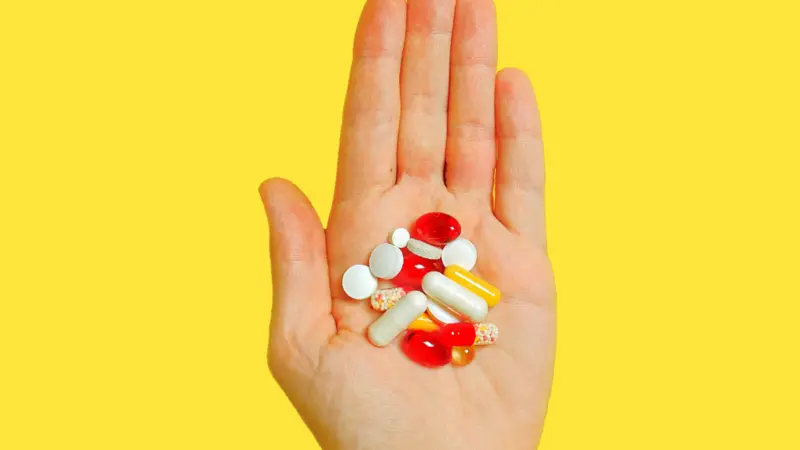

WELLthier Living and Aging

WELLthier Living and Aging
Pain Drugs May Do More Harm Than Good
Non-steroidal anti-inflammatory drugs, or NSAIDS, are among the most widely used medications in the world, used to treat inflammation. Prescription-strength varieties of NSAIDS account for about 5-10% of all medications prescribed each year. Known by brand names such as Advil and Motrin, these drugs give fast relief from pain but have significant negative side effects.
NSAIDS reduce pain and fever by blocking cyclooxygenases (COX) enzymes, which stops the production of prostaglandins. However, as the important COX enzymes protect the stomach and intestinal lining, blocking them can damage your gut. In fact, approximately 15% of patients who take NSAIDs long-term develop a peptic ulcer. The risk of bleeding ulcers doubles if aspirin is taken with other NSAIDS.
Recent research suggests that bleeding, inflammation, and ulcers in the stomach are the result of dysbiosis, or changes in the gut microbiome balance brought on by these medications. Studies show that medications you ingest are reflected in the types of bacteria that populate your gut.
One study showed that diarrhea caused by NSAID use could last for up to six days. Heartburn and reflux are also common among NSAID users, as NSAIDS irritate the lining of the esophagus as well as the intestinal lining. NSAIDS also increase intestinal permeability, which can cause or worsen leaky gut. One study showed that even one 600mg dose of aspirin was enough to increase intestinal permeability.
Amy Myers, M.D., developed a functional medicine approach to get to the root cause of inflammation and heal, rather than mask, the symptoms. Her approach includes removing inflammatory foods from the diet, avoiding environmental toxins, and reducing stress. She also recommends supplementing with digestive enzymes and probiotics and replacing NSAID use with natural anti-inflammatory supplements such as liposomal curcumin and omega-3s.
REFERENCES
Myers, A. (2020, January 30). 6 reasons NSAIDS are harmful to your gut. [ebook]. https://www.amymyersmd.com/2020/02/reasons-nsaids-harm-your-gut/


 By
By






